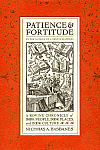 |
 |
| Home |
Search |
Events |
Business Section |
Scholarly Section |
Quality Bargains |
About Us |
Select Seventy
|
Robert Whitaker co-sponsored by the Friends of Harvard Art Museums Sackler Museum *Starred Review* "American psychiatry has excelled throughout the nation's history, but doctors and drug manufacturers have profited far more than psychiatric patients. When the World Health Organization compared schizophrenics' recovery rates in the U.S. and in nations too poor to afford the latest psychopharmaceuticals, it found that a Third World patient was exponentially likelier than an American one to regain sanity. Whitaker's articulate dissection of "mad medicine" in the U.S. explains why that dismaying contrast obtains. Assuming that insanity arises from identifiable physical causes, American psychiatry theorized about those causes and sought to find physical therapies and, later, drugs that attacked those causes. Accordingly, from being shocked with cold water and repeatedly nearly drowned, to suffering chemically and electronically induced grand mal seizures, to having the frontal lobes of their brains chopped off, to being drugged into parkinsonism (the preferred modus nowadays), the mad in America have suffered as essentially nonconsensual experimental subjects. Since World War II, drug companies have made continued testing increasingly worthwhile, despite the lack of encouraging results. This horrifying history is all the more discomfiting because another mode of treatment was successfully used from the late eighteenth century until the 1870s. Called moral treatment by its Quaker champions, it involved treating the mad with kindness and sympathetic companionship rather than drugs and machines. But it cost too much, and it wasn't professional." -- Booklist |
||||||||||||
Home | Search | Business | Scholarly | Bargains | Events | About Us | Contact
Copyright 2002 Harvard Book Store
Phone: 800-542-READ FAX: 617-497-1158

